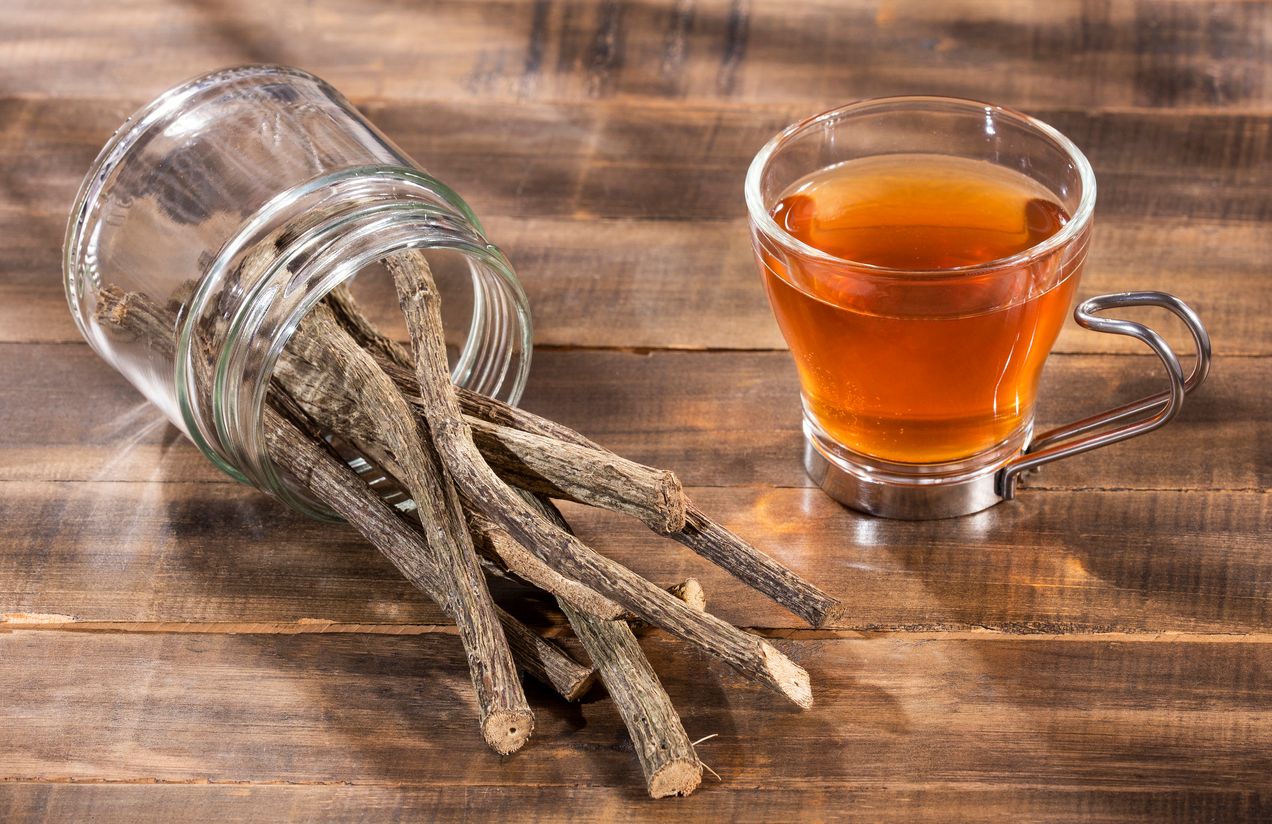Many people turn to natural remedies like GABA and Valerian Root for better sleep and relaxation. These two supplements offer potential benefits for sleep, anxiety, and insomnia, but how do they compare, and which is right for you? Is GABA better than Valerian Root? Discover the key differences between GABA and Valerian Root in their mechanisms of action, effectiveness, safety, and side effects, and learn how to choose the right supplement for your needs.
Key Takeaways
- GABA and Valerian Root both have the potential to promote relaxation and sleep, and alleviate insomnia.
- Consult a healthcare professional before taking GABA or Valerian Root supplements due to side effects and interactions with medications.
- Consider personal needs when choosing between the two supplements for optimal results.
Understanding GABA and Valerian Root

GABA and Valerian Root are natural substances used to promote relaxation and sleep, and alleviate insomnia, but they have different mechanisms of action. GABA, or gamma-aminobutyric acid, is a neurotransmitter that regulates nerve activity in the brain, significantly contributing to anxiety, stress, and sleep control.
On the other hand, Valerian Root is an herbal remedy utilized for centuries to induce relaxation and sleep, including for those with sleep disorders. Both substances have been incorporated into sleep aids and anti-anxiety supplements, but which one is more effective for you?
What is GABA?
Gamma-aminobutyric acid (GABA) operates as a neurotransmitter, suppressing brain hyperactivity to control anxiety, stress, and sleep. Activation of GABA receptors facilitates sleep and enables the body and mind to relax and drift off, helping to alleviate insomnia symptoms.
Reduced GABA activity may induce the following conditions:
- Anxiety
- Depression
- Insomnia
- Mood disorders
The chemical structure of GABA is C4H9NO2, a gamma-amino acid with the amino substituent positioned at C-4.
For those keen on exploring the best GABA supplements, I've written an article in early 2023 reviewing the top five available. Discover the top five GABA supplements here.
What is Valerian Root?
Valerian Root is an herbal extract derived from the Valeriana officinalis plant, renowned for its calming properties. Traditionally used as a natural sleep aid, Valerian Root has been the subject of numerous studies, suggesting it may be beneficial for improving sleep quality, reducing anxiety, and alleviating symptoms of OCD.
Valerian Root can be found in various forms, such as capsules, tablets, teas, and tinctures.
For those interested in exploring the top Valerian Root supplements in the market, you might want to check out an article I wrote several months ago about the top five Valerian Root Supplements. You can check it out here!
Mechanisms of Action: GABA vs. Valerian Root

GABA and Valerian Root work differently in the brain to promote relaxation and sleep, but both interact with neurotransmitters in sleep regulation. GABA functions as a neurotransmitter, binding to GABA receptors and inhibiting the activity of excitatory neurotransmitters, thus reducing neuronal activity and calming the nervous system.
Valerian Root, on the other hand, is known to increase GABA availability, interact with certain receptors, and affect serotonin receptors, resulting in sedative and anxiolytic effects. Grasping the action mechanisms of these two supplements can guide you in selecting the one that best fits your needs.
How GABA Works
GABA operates through binding with brain GABA receptors, which lessens neuronal excitability and induces relaxation. Upon binding to GABA receptors, an ion pore opens, allowing the influx of chloride ions into the neuron, hyperpolarizing it, decreasing its excitability, and promoting relaxation and inhibition of neuronal activity.
GABA receptors are mainly composed of α, β, and γ subunits, and benzodiazepines can bind to specific interfaces between these subunits to augment the effects of GABA.
How Valerian Root Works
Valerian Root comprises compounds that amplify GABA availability and interact with mood and sleep receptors, possibly facilitating calmness and alleviating anxiety and insomnia. Valerian root contains compounds such as valerenic acid and valerenol, known to modulate GABA receptors and inhibit the enzymatic destruction of GABA, resulting in increased GABA availability in the central nervous system.
Furthermore, Valerian Root compounds likely interact with serotonin receptors, which are involved in regulating mood and sleep, as well as adenosine receptors, which also play a role in mood and sleep regulation.
Effectiveness of GABA and Valerian Root for Sleep and Relaxation
GABA and Valerian Root have shown potential benefits for sleep and relaxation, but research results are mixed, and more studies are needed. GABA research suggests that supplementation may improve sleep latency and non-REM sleep.
On the other hand, Research on Valerian Root has demonstrated potential benefits for sleep quality and reducing sleep onset latency, but the results are not consistently positive across all trials.
The effectiveness of these dietary supplements may differ from person to person, and consultation with a healthcare professional is highly advised before adding them to your routine, especially if you are taking prescription medications.
GABA Research
GABA research in sleep medicine suggests that supplementation may improve sleep latency and non-REM sleep, potentially helping to improve sleep quality and reduce sleep disturbances. Still, more studies are needed to confirm its effectiveness.
Numerous studies have shown that GABA supplementation can enhance sleep, with one investigation finding that 100 mg of GABA capsules improved waking feelings and reduced the time it takes to fall asleep.
Another study revealed that the combined use of GABA and l-theanine decreased sleep latency and increased sleep duration. It is suggested to take GABA supplements for at least one week to observe an effect on sleep; however, further research is required to comprehend the effects of GABA supplementation on sleep completely.
Valerian Root Research
Research on Valerian Root has demonstrated potential benefits for sleep quality and reducing sleep onset latency, but the results are not consistently positive across all trials. Clinical trials indicate that with repeated usage, valerian induces sleep-inducing effects without modifying sleep architecture at moderate doses.
The typical dosage of Valerian Root ranges from 400 mg to 900 mg, taken before bedtime. Although research has shown potential benefits for sleep and anxiety, more studies are needed to understand the effectiveness of Valerian Root fully.
Safety and Side Effects of GABA and Valerian Root

GABA and Valerian Root are generally deemed safe, yet they may instigate side effects and interact with specific medications. GABA side effects are rare but may include drowsiness, headache, and gastrointestinal issues; it may also interact with certain medications.
Valerian Root is safe for short-term use, but potential side effects include daytime drowsiness, stomach issues, and rare cases of liver damage; it may also interact with other medications. Before adding these supplements to your regimen, consulting a healthcare professional is necessary.
GABA Safety and Side Effects
GABA adverse effects may include:
- Drowsiness
- Headache
- Gastrointestinal issues
- Upset stomach
- Sleepiness
- Muscle weakness
These side effects are rare but can occur when taking GABA supplements.
GABA may interact adversely with the following medications:
- Antihypertensive drugs
- Anticonvulsants
- Benzodiazepines
- Barbiturates
- Certain antidepressants
When considering GABA supplementation, it is essential to consult with a healthcare professional before commencing any new supplement regimen.
Valerian Root Safety and Side Effects
Valerian Root is safe for short-term use, but potential side effects include daytime drowsiness, stomach issues, and rare cases of liver damage. Milder side effects of Valerian Root may include abdominal discomfort and grogginess upon waking.
Valerian Root may interact with other medications, particularly sedatives and substances that induce drowsiness. Therefore, it is essential to exercise caution when combining Valerian Root with other drugs and consult with a healthcare professional before incorporating any herbal supplements into your routine.
Choosing the Right Supplement: GABA or Valerian Root?

The choice between GABA and Valerian Root depends on personal needs, preferences, and potential medication interactions. GABA may be a better choice for those seeking a more direct approach to increasing GABA levels in the brain and promoting relaxation.
On the other hand, Valerian Root, which is often found in the form of valerian extract, may be more suitable for those interested in a natural, herbal approach to improving sleep quality and reducing anxiety, as it is one of the effective natural sleep aids.
Regardless of which supplement is chosen, consulting with a healthcare professional to ensure it suits your specific needs is vital.
When to Consider GABA
GABA may be a more suitable choice for those who need a more direct approach to increasing GABA levels in the brain and promoting relaxation. GABA has a more powerful effect on regulating nerve cells, while Valerian Root has a similar yet milder effect.
GABA supplements may be beneficial for conditions such as:
- anxiety
- depression
- insomnia
- mood disorders
- stress
However, it is essential to consult with a healthcare professional before commencing any new supplement regimen, as GABA may interact with certain medications.
When to Consider Valerian Root
Valerian Root may be more suitable for those interested in a natural, herbal approach to improving sleep quality and reducing anxiety. Valerian Root has been the subject of numerous studies, suggesting it may be beneficial for improving sleep quality, reducing stress, and alleviating symptoms of OCD.
It is important to note that each individual’s body chemistry is different, and the effectiveness of Valerian Root may vary between individuals. As with GABA, it is essential to consult with a healthcare professional before incorporating Valerian Root supplements into your routine to evaluate if it is a suitable option for your requirements.
How to Use GABA and Valerian Root Supplements
For practical usage of GABA and Valerian Root supplements, adhere to product label instructions, seek advice from a healthcare professional, and take note of possible interactions with other medications.
The recommended dosage for GABA supplements is generally 500 to 1000 mg per day to achieve a calming effect. For Valerian Root supplements, the typical dosage ranges from 400 mg to 900 mg, taken before bedtime. Taking Valerian Root consistently for two or more weeks is recommended for optimal results.
Adherence to these guidelines allows for the safe and effective inclusion of GABA and Valerian Root supplements in your routine for improved sleep quality and reduced anxiety.
Some Final Thougts On These Sleep Solutions
Wrapping things up, isn't it amazing how nature offers us options like GABA and Valerian Root to soothe our minds and catch some quality zzz's? GABA acts like your brain's volume knob, dialing down the noise, while Valerian Root gives a gentle nudge to the sleep fairy. It's like choosing between a calming tune or a lullaby!
Remember, every individual is a unique blend of needs and responses, so what works for one might not work for another. Fancy diving even deeper? I've also compared Valerian Root to another wonder herb, Ashwagandha. Dive into the Valerian vs. Ashwagandha showdown here. And, a golden nugget of advice: always have a chat with your trusted healthcare provider before mixing up your wellness cocktail. Here's to serene nights and refreshed mornings!
Frequently Asked Questions
Is valerian root the same as GABA?
Valerian root contains a small amount of GABA but does not act on benzodiazepine receptors like pure GABA, suggesting it has a GABA-like activity.
What is better than valerian root?
For disruptions to your circadian rhythm, such as jet lag, melatonin may be a better option than valerian root since it can help reset a person's inner clock. However, both melatonin and valerian root can be helpful for getting to sleep faster.
What is the strongest herb for sleep?
Valerian is the most potent herb for sleep and has a long history of use for promoting restful sleep. It is often referred to as "nature's tranquilizer" and has been studied extensively for its effectiveness in treating insomnia, anxiety, depression, headaches, and other sleep-related issues. Valerian has been used for centuries to help people relax and get a good night's sleep. It is a safe and natural alternative to prescription sleep medications, and it is effective.
Can I take GABA and Valerian Root supplements together?
Yes, you can take GABA and Valerian Root supplements together if you consult your healthcare professional first for safety.
Are there any side effects associated with GABA and Valerian Root supplements?
GABA and Valerian Root supplements can cause drowsiness, headache, and gastrointestinal issues. Valerian Root may also potentially lead to liver damage in rare cases.
Thanks for taking this journey with us to explore the ins and outs of GABA and Valerian Root. And, don't forget to check out our review articles mentioned above - they contain great information to add to your library of knowledge!.
Also, please come back soon to check out our next review of another awesome supplement – we’re always looking out for YOU!
*We are not qualified medical advisors. The content here is only based on our personal opinions and should NOT be used as a substitute for a healthcare professional's advice!











Member discussion